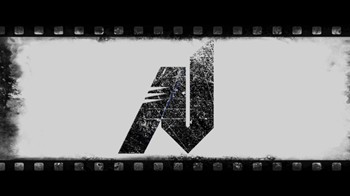Pet Sematary, the second adaptation of Stephen King’s beloved horror tragedy, is a tough nut to crack. Directors Kevin Kölsch and Dennis Widmyer triumph in the department of verisimilitude in tackling the unnerving subject matter of the 1983 novel. With credit to its themes of death and resurrection, this is a harrowing, emotionally brutal film that aspires to psychological horror rather than jump scares.
Kölsch, in a Q&A after the film’s Los Angeles premiere at the Egyptian Theatre, described the experience as “sort of like a dare” to execute. There are subversions and inversions to the well-known plight of the Creed family’s big move to Ludlow, Maine that, much to the filmmakers’ delight, were championed by King. Jeff Buhler, the film’s screenwriter, described his mission in adapting the book as “[identifying] the monster as grief and loss.”
Certainly, that harbinger is an ace in the hole for the new film. Laurie Rose’s cinematography and Christopher Young’s moody score make the road traveled more uneasy. Moral ambiguity is widespread, and the characters’ imperfect judgment is held accountable.
The downside to the success, however, is that they do so well with digging into the mental fracture that the story feels glossed over. Kölsch and Widmyer navigate towards dread within the first minute of the film, a feeling that never lets up till the credits roll.
We’re never given time to breathe and get to know the Creed family and Jud Crandall as humans. Even before Louis Creed (the always welcome Jason Clarke) can discover the supernatural burial ground, he has no hope. His wife, Rachel (Amy Seimetz), is immediately consumed by her grief. The best served vantage point comes through Ellie (Jeté Laurence), whose fascination with death has a more gradual escalation from precocious to unthinkable.
Even Jud, the voice of reason in the story, comes off as a man with a secret from the get-go. Mary Lambert’s 1989 film is still remembered today for the warmth and heartbreak in Fred Gwynne’s empathetic performance. John Lithgow is a definitive choice for Jud, so much so that Kölsch and Widmyer said he was their first (and perhaps only) idea for the part. Incapable of being remotely listless,
Lithgow is fantastic as the lonely, weathered Jud, but he just does not get enough great moments. His character development bears little fruit, with only trace references to the richness that King created. In tandem with the rushed story, Jud never feels lived into the Creeds’ presence, often reduced to an exposition device.
For that, this is not a remake of what we got in 1989. Adapted by King himself, the first attempt was a massive hit that never had to achieve cult status. However, that was the MTV pop art version. It’s slick and duly crafted behind the camera. The Ramones song is still great.
That cast, save Gwynne, is vapid. If you compare Clarke’s Louis to what Dale Midkiff plays, you’ll easily realize that the latter is an impulsive dumbass oblivious to consequences. For god’s sake, he’s a doctor! Conversely, Clarke is not only a believable intellectual, he has a clue of the risks he takes within the universe.
2019’s Pet Sematary has its thesis is in the first sentence: abandon all ye hope who enter here. The first two acts are fascinating in creating conflict with an intangible villain. Despite my issues with the story, the confidence with which it depicts the internal and external struggles is devastating.
That virtue only gets it through that allotted time, leading to a thematically broken finale that betrays what leads up to it. Jordan Peele hit a home run on a similar balancing act in Us, but unlike that, Pet Sematary’s denouement does not feel consistent.
If I was harder on it, “sometimes dead is better” would be the Captain Obvious punchline, but for the most part, the new Pet Sematary is a success. If a dour tone and over-the-top resolution gives us a faithful rendition of King’s message about anguish and regret, that’s a tradeoff I’m willing to make—and more power to a major studio like Paramount for allowing Kölsch, Widmyer, and Buhler to run wild with material this dark.


